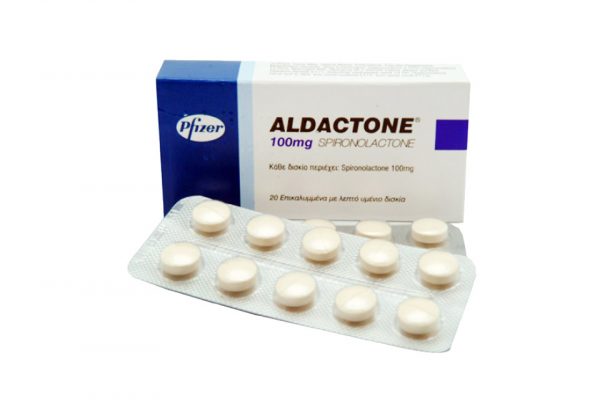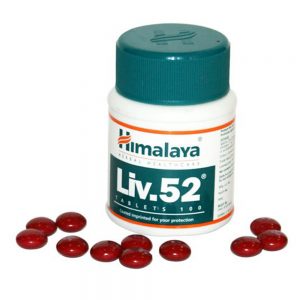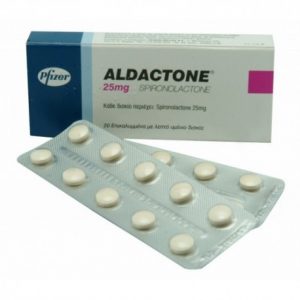Pharmachologic effect:
Potassium-sparing diuretic, whose action is caused by antagonism with aldosterone (ISS hormone of the adrenal cortex), which promotes the reabsorption of Na + in the renal tubules and the excretion of K +. Spironolactone is a competitive antagonist of aldosterone on the effect on the distal nephron (competes for binding sites on cytoplasmic protein receptors, reduces the synthesis of permeases in the aldosterone-dependent section of the collecting tubules and distal tubules), increases the excretion of Na +, Cl – and water and reduces the excretion of K + and urine tubules) and increases the excretion of Na +, Cl – and water and reduces the excretion of K + and urine tubules) and increases the excretion of Na +, Cl – and water and reduces the excretion of K + and urine tubules. , reduces the titratable acidity of urine. Increased diuresis causes a hypotensive effect, which is not constant. The diuretic effect is manifested at 2-5 days of treatment.
Indications:
Edematous syndrome: CHF, cirrhosis of the liver (especially with the simultaneous presence of hypokalemia and hyperaldosteronism), nephrotic syndrome, edema during pregnancy. Hypokalemia (prophylaxis with saluretic treatment). Primary hyperaldosteronism (Conn’s syndrome) – short-term preoperative treatment. Arterial hypertension (in combination therapy). Aldosterone-producing adrenal adenoma (long-term supportive therapy with contraindications to surgical treatment or in case of refusal from it). Myasthenia (auxiliary drugs). Diagnosis of hyper aldosteronism. Hirsutism, polycystic ovary syndrome, premenstrual syndrome.
Contraindications:
Hypersensitivity, Addison’s disease, hyperkalemia, hypercalcemia, hyponatremia, chronic renal failure, anuria, liver failure, diabetes mellitus (with confirmed or suspected CRF), diabetic nephropathy, pregnancy (I trimester), metabolic acidosis, menstrual irregularity or an increase in the lactation glands. . AV blockade (possibility of amplification due to the development of hyperkalemia), decompensated liver cirrhosis, surgical interventions, taking drugs that cause gynecomastia, local and general anesthetics, old age.



